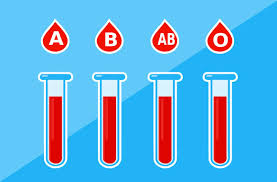
Breaking News
 Ultimate House of Cards: $5.1 Trillion Bond Fraud Set to Dwarf 2008 Crisis
Ultimate House of Cards: $5.1 Trillion Bond Fraud Set to Dwarf 2008 Crisis
 Escalation of Force: How to Choose the Appropriate Response to Potential Violence
Escalation of Force: How to Choose the Appropriate Response to Potential Violence
 Epstein's Island And The Gateway To The Psychology Of Evil
Epstein's Island And The Gateway To The Psychology Of Evil
 The Epstein Emails Reveal Shadow 9/11 Commission – Exclusive Report!
The Epstein Emails Reveal Shadow 9/11 Commission – Exclusive Report!
Top Tech News
 SpaceX Authorized to Increase High Speed Internet Download Speeds 5X Through 2026
SpaceX Authorized to Increase High Speed Internet Download Speeds 5X Through 2026
 Space AI is the Key to the Technological Singularity
Space AI is the Key to the Technological Singularity
 Velocitor X-1 eVTOL could be beating the traffic in just a year
Velocitor X-1 eVTOL could be beating the traffic in just a year
 Starlink smasher? China claims world's best high-powered microwave weapon
Starlink smasher? China claims world's best high-powered microwave weapon
 Wood scraps turn 'useless' desert sand into concrete
Wood scraps turn 'useless' desert sand into concrete
 Let's Do a Detailed Review of Zorin -- Is This Good for Ex-Windows Users?
Let's Do a Detailed Review of Zorin -- Is This Good for Ex-Windows Users?
 The World's First Sodium-Ion Battery EV Is A Winter Range Monster
The World's First Sodium-Ion Battery EV Is A Winter Range Monster
 China's CATL 5C Battery Breakthrough will Make Most Combustion Engine Vehicles OBSOLETE
China's CATL 5C Battery Breakthrough will Make Most Combustion Engine Vehicles OBSOLETE
 Study Shows Vaporizing E-Waste Makes it Easy to Recover Precious Metals at 13-Times Lower Costs
Study Shows Vaporizing E-Waste Makes it Easy to Recover Precious Metals at 13-Times Lower Costs
Enzyme can convert any blood into universally donated type O

Now researchers at the University of British Columbia have identified a new, more powerful group of enzymes that can turn any type of blood into the universally usable type O—expanding the pool of potential blood donors and making blood matching safer and easier.
"Blood type is determined by the presence of antigens on the surface of red blood cells; type A blood has the A antigen, B has the B antigen, AB blood has both antigens and O blood has none," said lead researcher Stephen Withers, a professor of chemistry at UBC. "Antigens can trigger an immune response if they are foreign to the body, so transfusion patients should receive either their own blood type, or type O to avoid a reaction. That's why O blood is so important."

 Smart dust technology...
Smart dust technology...

